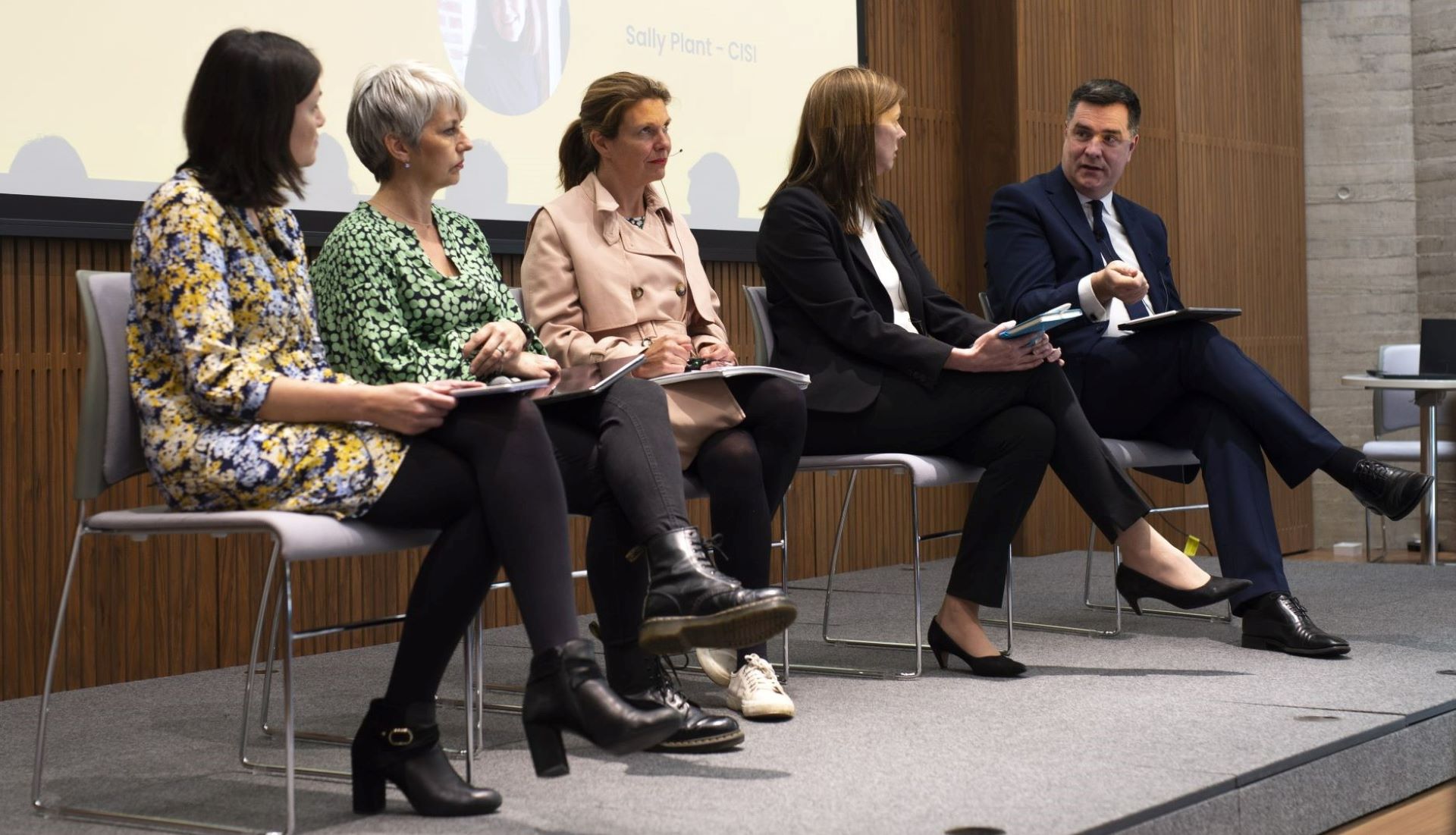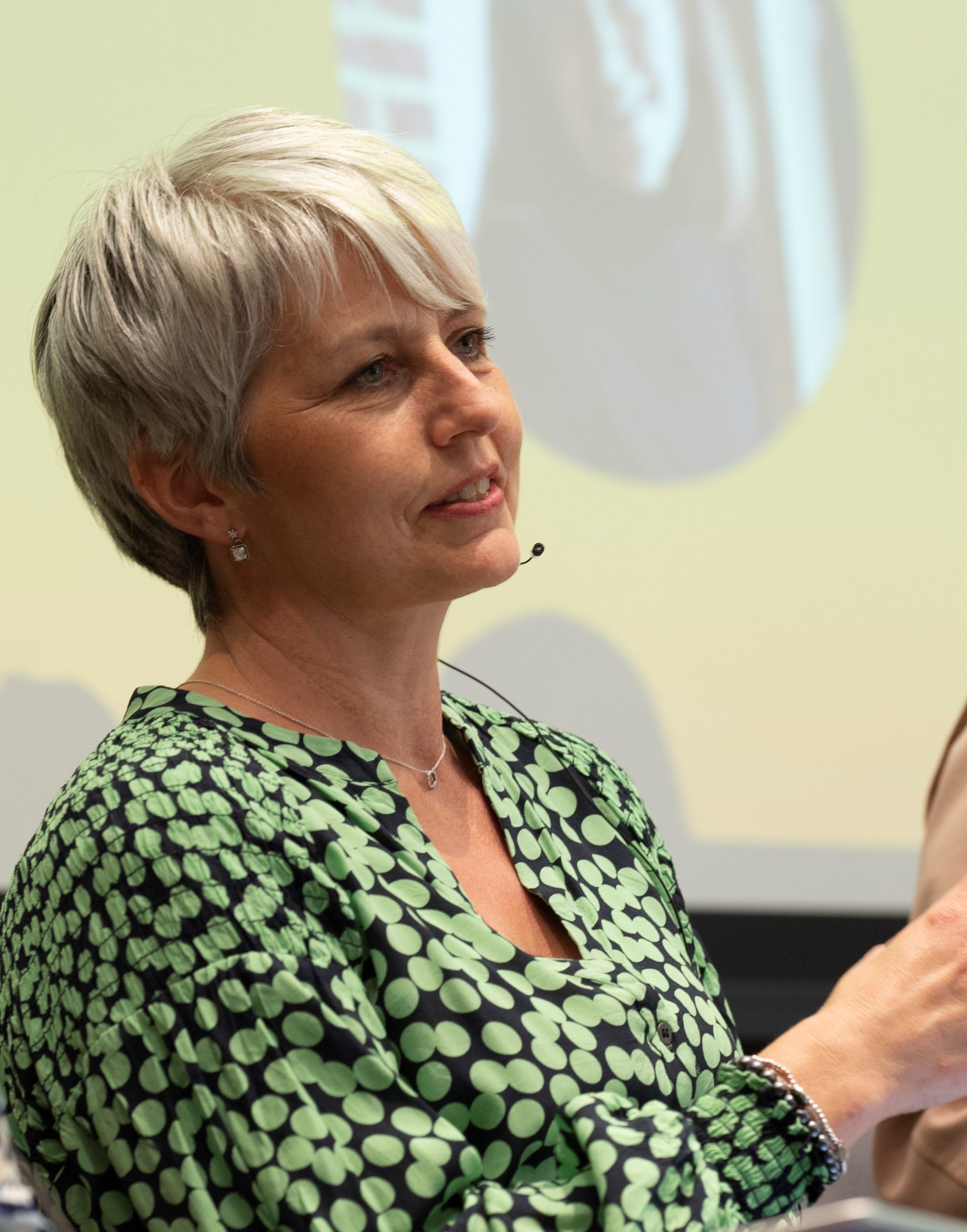Understanding the advice gap comes down to two important questions: what is stopping most people from seeking advice, and what do we do about it?
Our latest report, The Advice Gap 2023, is our attempt at getting to a meaningful answer. The findings are based on consumer research carried out by YouGov on behalf of the lang cat with 2,035 consumers, alongside adviser research with over 200 responses from advice professionals who sit on our adviser research panel.
By analysing the advice gap from all angles, we hope it will start a conversation about what it will take to collectively get advice and planning in front of more people.
At a launch event in London last week, we brought together representatives from across the sector to hear about the kind of activity that’s underway to try and narrow the advice gap, and the challenges that remain.
Our panellists were:
- Amanda Mayes, operations director, Magus Wealth
- Ross Liston, CEO, M&G Wealth Advice
- Sally Plant, head of financial planning, Chartered Institute for Securities & Investment
- Sarah Layden, interim managing director – direct wealth, Aviva
Here’s what they had to say.
What’s the problem?
Before diving head first into solution mode, it’s worth setting out the problem to address.
The headline finding from the report is that 11% of the population in Great Britain have paid for advice in the last two years, leaving 89% who haven’t. When we asked consumers what would need to change in order to convince them to take advice, being sure they could trust the advice came out on top.
Magus Wealth operations director Amanda Mayes said the persistent lack of trust in the profession was disheartening, particularly given the changes the advice market has made over the past 30 years, and with the move towards higher professional standards.
She said: “The biggest thing for me is the lack of trust in advisers – still, despite so much work that’s been done.
“It is really frustrating. You just feel like nothing has changed, when actually lots has changed.”
M&G Wealth Advice CEO Ross Liston highlighted the report’s findings which show of those who have received advice, almost nine out of ten believe the advice represents good value for money.
He said: “For the 11% of people who are thankful for the advice they get, we’re doing a really good job there. But it’s absolutely right that we need to focus on the 89%.
“In terms of M&G Wealth Advice, our focus is around how do we help address the advice gap. We’ve made a strategic commitment to grow our business to make advice more accessible, and we’ve invested in an academy to try and bring people through, and more diverse advisers as well.
“We’re also looking at our platform and advice solutions, whether that is robo-advice or hybrid, to understand how we best support the market.”
When to have the conversation
The lack of financial education in schools is often lamented by those in financial services, with some pointing to this as the reason why people don’t engage with their money further down the line.
CISI head of financial planning Sally Plant said while education is important, there is a discussion to be had about when that financial conversation should take place.
She said: “Lots of professional bodies and trade bodies are trying to improve financial literacy within schools. But actually [a better] question might be: when does that information needs to come? Is it at school level? Or is it perhaps more at around age 30, so that people understand what planning is, what advice is, what good advice is and how they access it.
“We really need to focus on what point that education needs to come because it’s a continuous conversation to improve trust. It’s not a one hit wonder. I’ve got three children, all in school. And I know that if someone spoke to them just once about budgeting and to provide a basic understanding around money and financial literacy, it might not have the same impact.”
Aviva interim managing director of direct wealth Sarah Layden agreed. She said Aviva was looking at ways to engage a similar age group – 35-45 years old – and how to help them build good financial habits at that stage:
Sarah said: “I find it really quite stark when you think that the average age of people getting advice is 59. In a world where we’re changing from defined benefit to defined contribution, to wait until you’re 59 find out that you haven’t saved enough for retirement, it’s just too late.
“[The trust issue] is partly because people aren’t engaged. When we’ve spoken to customers, they feel it’s their fault that they don’t understand it, which is quite shocking. You speak to educated people and they say: ‘I know I should know about this. It’s my fault. I don’t have enough time’ And you think: it’s not your fault. It’s actually as an industry we’re just not making it accessible enough. So we as an industry need to work on that.”
The perception gap
Our report found there is a clear difference between the perception of advice and the reality. When consumers were asked “what word(s) come to mind when you hear the words ‘financial advice?’” the negative responses made for pretty bleak reading. Words like ‘commission’, ‘untrustworthy’ and ‘dodgy’ all made an appearance.
By contrast, among the advised respondents, 87% found the advice they received either fairly or very helpful.
The difficulty is this perception gap also exists for the would-be advisers and planners we need to recruit into the profession.
Sally spoke about holding an event last year to attract new talent and to explain what financial planning is to university students and graduates.
She said: “Typically graduates came because they wanted to be a trader, they didn’t even know what financial planning is. Some of them half mentioned investment management, or the CFA. And [yet] when the graduates were leaving, they were like: ‘this is an amazing profession’.”
Ross pointed out that even with more people coming through, it will still take a while for those new recruits to become established enough to then get advice out to more people.
He said: “When we look at some of the stats around what consumers think about advice, it’s the same audience when we’re trying to attract advisers in.
“Our academy has 130 people going through it just now. But the reality is, when you come out the end of that, you need run rails to keep you right and you need lead flow. You’re not going to jump straight into inheriting an established IFA practice at that stage.
“So we may need to accept that customers are looking for different things from advice, so perhaps new advisers might start on a more simplified track and build up their credentials and capabilities, before they move into the [full advice] space.”
The role of technology
So if recruiting more advisers isn’t enough on its own to tackle the advice gap, what else needs to happen?
Panellists discussed the role of hybrid advice, in the sense of using technology to bring advisers and consumers together. It was argued that sometimes people would be better served by engaging with a provider directly, and equally there will be times when advice is crucial. One suggestion was a framework to identify when people need advice, and connect people with advisers at the relevant points in their lives.
Of course, you can’t have a conversation about technology in advice without mentioning Chat GPT.
Sally was interested to see how tools such as Chat GPT will evolve, and whether in time they will deliver a more efficient advice process and free up more time for planners to spend with clients.
Sarah said artificial intelligence was already being deployed within Aviva as part of its pension consolidation service.
“We recently bought a fintech company which is using basic AI to actually find people’s pensions. Once traced, it will look for safeguarded benefits, and then create a report. There’s no element of advice in that, it’s just taking up all the administration you would normally be doing to actually deliver something useful for the customer. I think that’s really important that as an industry, we’re looking at all the ways in which we can do that.”
Where next
One clear recommendation from the report was that advice and planning needs to be championed at all levels – by advisers themselves through encouraging referrals, and by providers in conjunction with trade bodies. The FCA also has a role to play in not only supporting the advice firms which do right by their clients, but also in sorting out the FCA Register so that consumers can check more easily whether firms are legitimate.
Ross agreed that tackling the advice gap needs to come from several angles, whether that’s embracing technology or through more targeted financial education.
He added: “But we shouldn’t lose sight of the 11% we mentioned right at the start where we’re winning and where we are demonstrating value. So it’s about how do we get advocacy, and how do we take that out?”
Amanda said: “What really stood out for me was the amount of people that would get advice if they knew where to go for it. If we do one thing, it should be to make it easy for people to know where and how to get advice. That should be through a centralised campaign, supported by the regulator and the trade bodies. It might be a rose tinted view, but there is an opportunity for people to come together here and really promote the profession – like we’ve been talking about doing for years.”
What our panellists are doing to narrow the advice gap
Amanda Mayes, Magus Wealth
Magus Wealth is in the early stages of building a service to cater to clients they can’t viably look after via its full planning service. These fall into three groups: children and grandchildren of clients, young professionals and legacy clients with smaller assets.
The firm is looking at white-labelling a platform which they can guide these types of clients towards. This is likely to be a hybrid model providing guidance at the start, then allowing people to self-serve and start their savings journey on their own. Clients will still have access to Magus resources and the firm will stay in touch so that the Magus team is there as and when these clients need planning in the future.
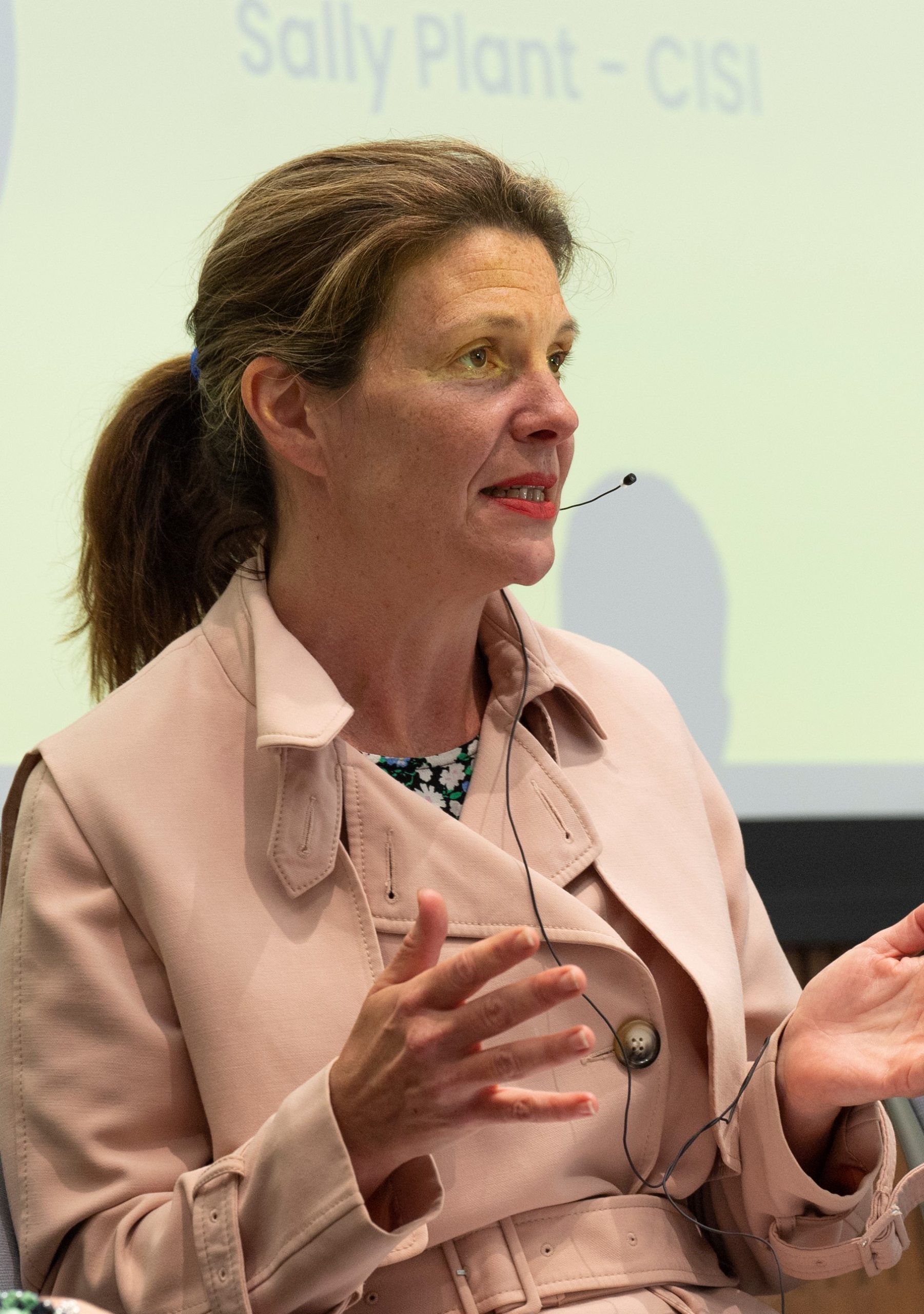
Last October the CISI partnered with NextGen Planners to run an event aimed at recruiting university students and graduates into financial planning.
It has also relaunched its Find a financial planner directory, and promoted financial planning through various channels including YouTube and even radio adverts on Jazz FM.
In September the professional body is launching six school hubs, with each hub typically made up of six schools. Planners will deliver free ‘fundamentals of financial services’ sessions and talk about financial planning as a career.
The CISI is also working with around 30 universities through things like career days.
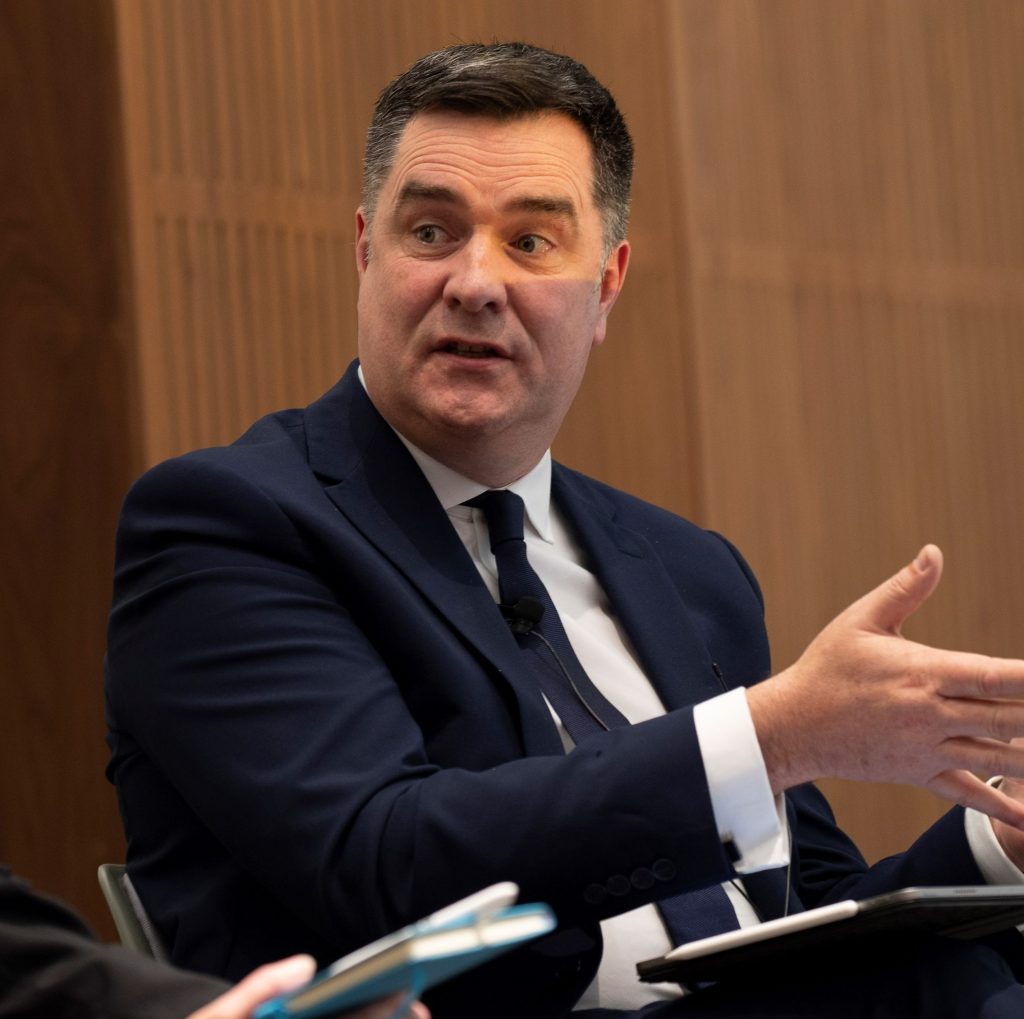
M&G Wealth Advice runs an adviser academy, with 130 people going through the academy process. M&G Wealth launched its hybrid advice service in 2021, which uses a mix of technology and advisers. Earlier this year it also rolled out its investing app, &me.
Ross says: “The ability to pass clients through the right route at the right time to demonstrate the right value for that end customer is great, it’s a journey we’re on. The challenge from an M&G perspective is how can we share some of that with our larger financial advice footprint throughout our intermediary channels.”
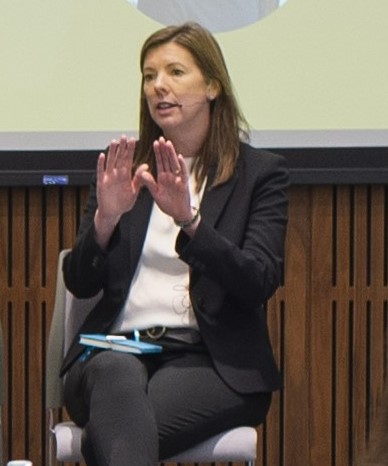
Aviva offers a range of advice options, from direct advice to advice through Succession Wealth, which it acquired in August 2022. The company is particularly interested in how to engage consumers aged 35 to 45 years old with their finances.
Sarah says: “We’ve seen the evidence that as people become more financially confident, they’re more likely then to take action. If they’re more likely to take action, they’re more likely to speak to an adviser, so I really think it’s at that level we need to focus. That is on the large providers, in essence, where we have the resources behind us to make sure we are getting that messaging out there.”
